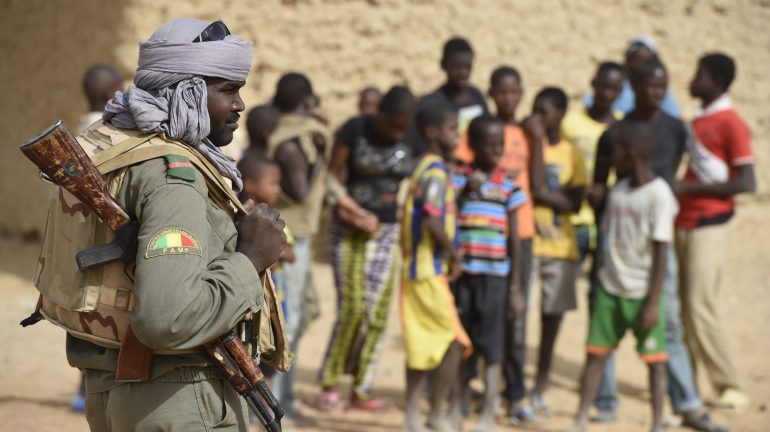Pan African News Blog | August 16, 2025
In the war-torn Sahel, where jihadist insurgencies and state-led counterterrorism operations have plunged communities into chaos, a disturbing trend is on the rise: the systematic recruitment of children by Islamist militants. Armed groups such as Jama’at Nasr al-Islam wal-Muslimin (JNIM) and the Islamic State Sahel Province (ISSP) are increasingly preying on minors—luring them with false promises, exploiting their desperation, and indoctrinating them into violence.
One chilling example occurred during a recent attack on Yube village in Burkina Faso, where militants handed a child an energy drink—a seemingly small gesture designed to build trust before coercion began. Such psychological manipulation is just one tactic in a broader strategy to radicalize and weaponize youth across the region.
The Tactics of Terror: How Children Are Recruited
Islamist militants employ a range of methods to recruit children, exploiting their vulnerability amid poverty, displacement, and weak governance:
- Psychological Grooming – As seen in Yube, militants use small incentives—food, money, or even toys—to establish rapport before pressuring children into joining. Some are promised protection or a sense of belonging, filling voids left by fractured families and failed state services .
- Forced Abduction – Many children are outright kidnapped during raids on villages or schools. In Burkina Faso alone, the UN verified 592 abductions between 2022 and 2024, with girls particularly targeted for sexual slavery and boys for combat roles .
- Exploitation of Poverty – With millions facing food insecurity and limited access to education, terrorist groups offer survival in exchange for loyalty. In Mali and Niger, children as young as six have been recruited, often under the false pretense of earning income for their families .
- Religious and Ethnic Indoctrination – Extremists manipulate local grievances, framing their cause as a fight for marginalized communities. In central Mali, Fulani children have been radicalized under the guise of defending their ethnic group against state-backed militias .
The Consequences: A Lost Generation
The impact on these children is devastating. Those forced into combat endure brutal training, are used as human shields, or coerced into suicide missions. Girls face sexual violence, forced marriages, and trafficking. Even those who escape bear deep psychological scars, struggling to reintegrate into societies that often stigmatize them as “terrorist associates” .
The long-term repercussions extend beyond individual trauma. The Sahel’s instability is self-perpetuating: a generation raised in violence becomes a recruitment pool for future militants. The UN reports that ISSP and JNIM now launch 35-40 attacks per week, with child soldiers increasingly on the front lines .
Failed Protections: Weak Responses and Complicit Forces
Despite international condemnation, efforts to curb child recruitment remain inadequate:
- State Forces Also Culpable – In Burkina Faso, government-aligned militias like the Volunteers for the Defense of the Homeland (VDP) have been implicated in recruiting minors, blurring the line between protectors and perpetrators .
- Collapsing Institutions – Military coups in Mali, Niger, and Burkina Faso have eroded child protection frameworks. Schools—once safe havens—are now frequent targets, with 132 attacks on education facilities documented in Burkina Faso since 2022 .
- International Inaction – The withdrawal of UN peacekeepers and sanctions monitors has left a vacuum, allowing abuses to go unchecked. Meanwhile, regional alliances like the Sahel States’ Alliance (AES) prioritize military solutions over rehabilitation programs .
A Path Forward: What Must Be Done?
To break this cycle, experts urge a multi-pronged approach:
- Strengthen Community Resistance – Local leaders and NGOs must be empowered to counter extremist narratives through education and economic alternatives .
- Protect Schools and Aid Access – Governments should enforce the Safe Schools Declaration and ensure humanitarian corridors to reach at-risk children .
- Accountability for All Perpetrators – Both jihadist groups and state-backed forces must face justice for recruiting children. The new AES Criminal Court in Bamako could be a step forward—if it operates impartially .
- Invest in Rehabilitation – Former child soldiers need psychosocial support, education, and vocational training to reintegrate successfully. The African Union’s proposed Continental Mental Health Framework could help, if funded .
Conclusion: A Call to Action
The Sahel’s children are not just casualties of war—they are its fuel. Without urgent intervention, the region risks losing an entire generation to violence. As Sima Sami Bahous of UN Women warned, “Abduction is not a by-product of terrorism in the Sahel, it is a tactic.” The world must act before more childhoods are stolen.
For further reading, explore reports by HRW, Global Centre for R2P, and UNICEF.
This article is based on verified UN data, NGO reports, and expert analyses. Share your thoughts in the comments or reach out to the author for more insights.
Child Recruitment by Islamists: How Terrorists Manipulate Youth | @AUYouthProgram @AUCTCentre
— AUC3I (@AUC31) August 15, 2025
Islamist militants in the Sahel are increasingly recruiting children through psychological manipulation. During a recent attack on Yube village in Burkina Faso, fighters gave a child… pic.twitter.com/GazaAYSmAL

Leave a Reply